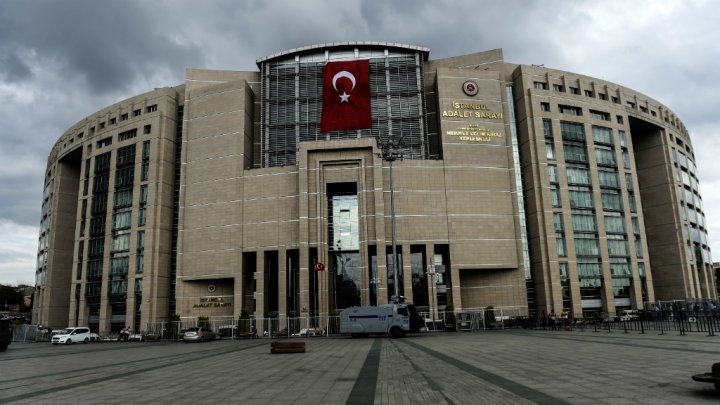
A photo taken on July 20, 2016 shows a Turkish flag on the Istanbul Justice Palace. Photo by AFP
Turkish authorities have issued arrest warrants for 42 journalists as part of the investigation into the failed coup aimed at toppling President Recep Tayyip Erdogan, television news channels said Monday.
Among those targeted by the warrants was prominent journalist Nazli Ilicak, who was fired from the pro-government Sabah daily in 2013 for criticising ministers caught up in a corruption scandal, NTV and CNN-Turk said.
The government blamed the 2013 corruption scandal on the US-based clericFethullah Gulen, whom it also accuses of being behind the botched coup on July 15.
The Hurriyet daily said that the warrants – the first to target several members of the press in the crackdown over the coup bid – were issued by the office of Istanbul anti-terror prosecutor Irfan Fidan.
The prosecutor said an operation was already in progress to detain the journalists but Ilicak was not found at home in Istanbul and could be holidaying on the Aegean Sea. Provincial police there have been alerted, it said.
There was no information on other journalists sought for questioning.
Turkey declared a three-month state of emergency and detained more than 13,000 people in the military, judiciary and other institutions following the foiled coup.
Under the state of emergency, Turkish authorities can hold suspects in detention without charge for up to 30 days before they are taken to a judge to decide whether to remand them in custody.
In an interview with FRANCE 24 on Saturday, Erdogan said the emergency powers were necessary to cure his country of “separatist terrorist organizations”, which he likened to a “cancer”.
But the wave of arrests has alarmed Turkey’s NATO allies and European leaders, amid fears the Turkish president may be exploiting the fallout from the failed to coup to crack down on dissenting voices.
His government had been under fire even before the coup for restricting press freedoms in Turkey, accusations the authorities strongly deny. – FRANCE 24 with AFP
